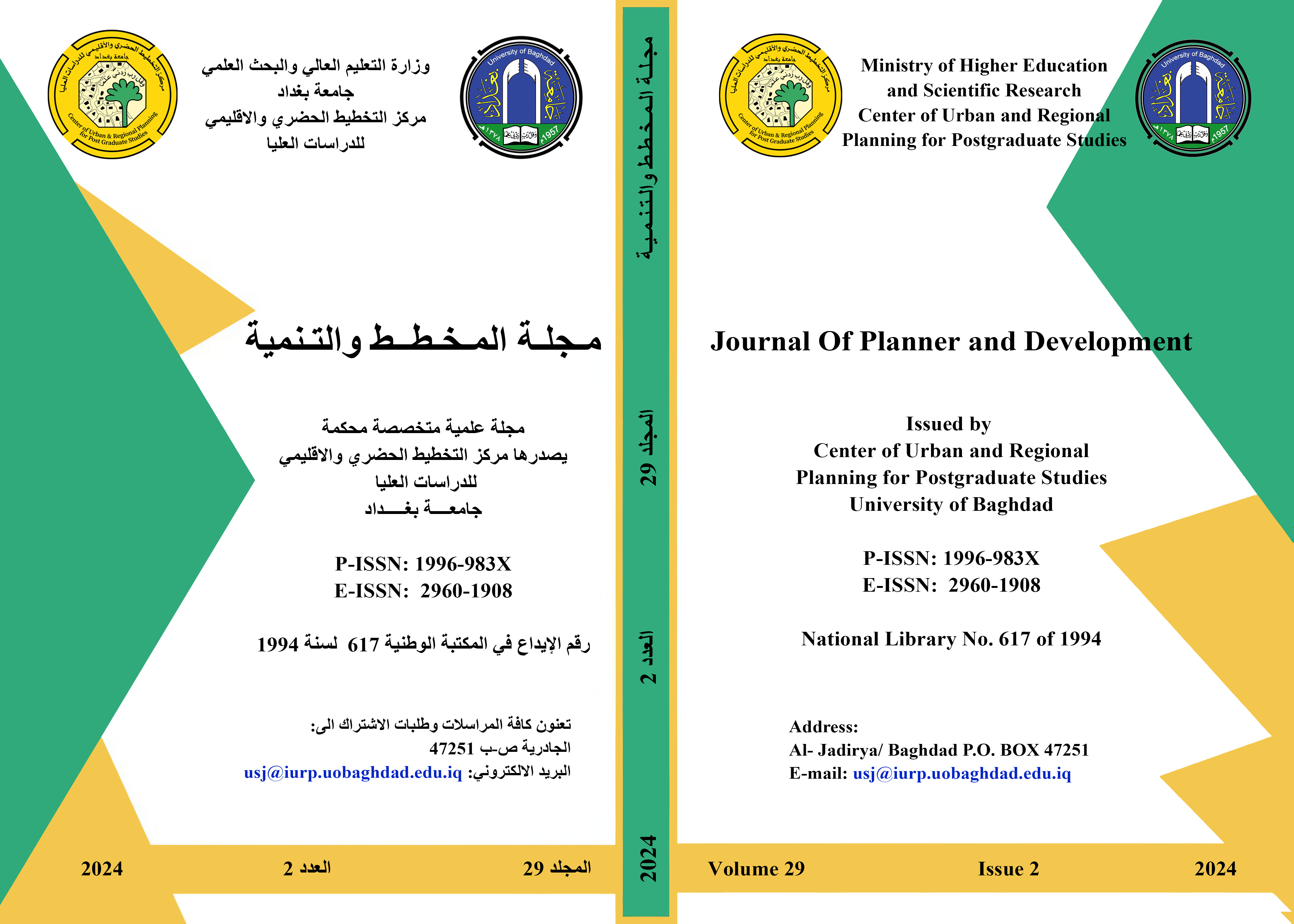Reclaiming Concept and Values of "Al-Hakoura" from Palestinian Memory and Folk Heritage to Support Urban Agriculture and Sustainability in Palestine
Keywords:
Urban agriculture، Al-Hakoura، Folk heritage، Cognitive production، Sustainability، PalestineAbstract
Abstract
Urban agriculture is a component of urban sustainability، as affirmed by the new global urban agenda. Unfortunately، urban agriculture still suffers from marginalization in Arab societies، including Palestinian urban communities. The concept and values of urban agriculture are deeply rooted in Palestinian heritage memory through the concept and values of the household farm ("Al-Hakoura")، which have started to fade in Palestinian cities.
Therefore، this study aims to reclaim the concept and values of "Al-Hakoura" from memory and Palestinian folk heritage to support urban agriculture and sustainability in Palestinian cities. This study used qualitative and cartographic methodologies in collecting، processing، and analyzing primary and secondary data through fieldwork in the cities of Ramallah، Al-Bireh، and Beitunia as case studies
. This study found that the concept and values of "Al-Hakoura" are deeply rooted in Palestinian memory and folk heritage، where they constituted an essential component of the Palestinian household. It served as the Palestinian household's food basket and a space for social and cultural interaction for Palestinian families and neighbors in the neighborhood، particularly for women، serving as a place for entertainment، and intellectual and cultural production such as stories، proverbs، poetry، food، and folk songs. Moreover، this study recommends reclaiming and enhancing the concept and values of "Al-Hakoura" by developing modern models of urban "Al-Hakoura" to support urban agriculture in Palestine، thereby enhancing the resilience of the Palestinian people on their land and in their cities to preserving and revitalizing Palestinian folk heritage، particularly under Israeli occupation and the siege of Palestinian cities



